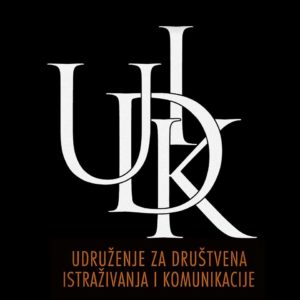 The Association for Social Research and Communication (UDIK) reminds the public of the anniversary of the war crimes against the Bosniaks of Čajniče. During May 1992, Bosniak civilians previously captured in the town or surrounding villages, as well as on the road to Pljevlja (Montenegro) while trying to escape the war, were killed at the hunting lodge in Mostina near Čajniče.
The Association for Social Research and Communication (UDIK) reminds the public of the anniversary of the war crimes against the Bosniaks of Čajniče. During May 1992, Bosniak civilians previously captured in the town or surrounding villages, as well as on the road to Pljevlja (Montenegro) while trying to escape the war, were killed at the hunting lodge in Mostina near Čajniče.
According to the Institute for Missing Persons of Bosnia and Herzegovina, a total of 138 missing persons were reported in the area of Čajniče. To date, 90 victims have been found and identified. The fate of another 48 people is completely unknown. The largest grave with the bodies of Bosniaks from Čajniče was found in Mostina, from which the remains of eighteen victims were exhumed in September 2002. The youngest victim in this mass grave was nineteen-year-old Zlatko Bukva. In addition to this, six more mass graves were found in Mostina, from which the bodies of a total of 60 victims were exhumed.
Two years ago, UDIK published the book “War Crimes in Čajniče – Verdicts” which documents the verdicts of the Court of Bosnia and Herzegovina for crimes committed against civilians in Čajniče and its surroundings. The Court has sentenced Milorad Živković, Milun Kornjača, Milosav Jovanović, Marijan Jovanović and Slavko Jovanović to six to eleven years in prison. Duško Tadić and Stevo Jovanović were acquitted.
In 2015, the State Court confirmed the indictment against Duško Kornjača. Kornjača is accused of being “as part of a wide and systematic attack by the Territorial Defense and the Police Station of the Serbian Municipality of Čajniče, as the president of the Crisis Staff, later the commander of the war headquarters of the Serbian Municipality of Čajniče, and the President of the Municipal Assembly and the Minister of Defense in the Government of the Serbian Autonomous Territory of Herzegovina, as a conscious participant of the joint criminal enterprise, he planned and ordered the persecution of the non-Serb population from the territory of the Čajniče municipality”.
Although it is known that Kornjača lives in Novi Sad, he is still unavailable to the judicial authorities of Bosnia and Herzegovina. Therefore, we once again appeal to the state of Serbia to extradite Duško Kornjača to the Court of B&H, which would show that regional cooperation on the issue of prosecuting those responsible for war crimes really exists. Only through joint efforts can we build a society without violence, a society in which war criminals will not hold lectures in schools, where the real heroes will be citizens who, with their work and effort, make our community better.
Today we remember all the war victims from Čajniče and its surroundings.
 UDIK Udruženje za društvena istraživanja i komunikacije
UDIK Udruženje za društvena istraživanja i komunikacije

